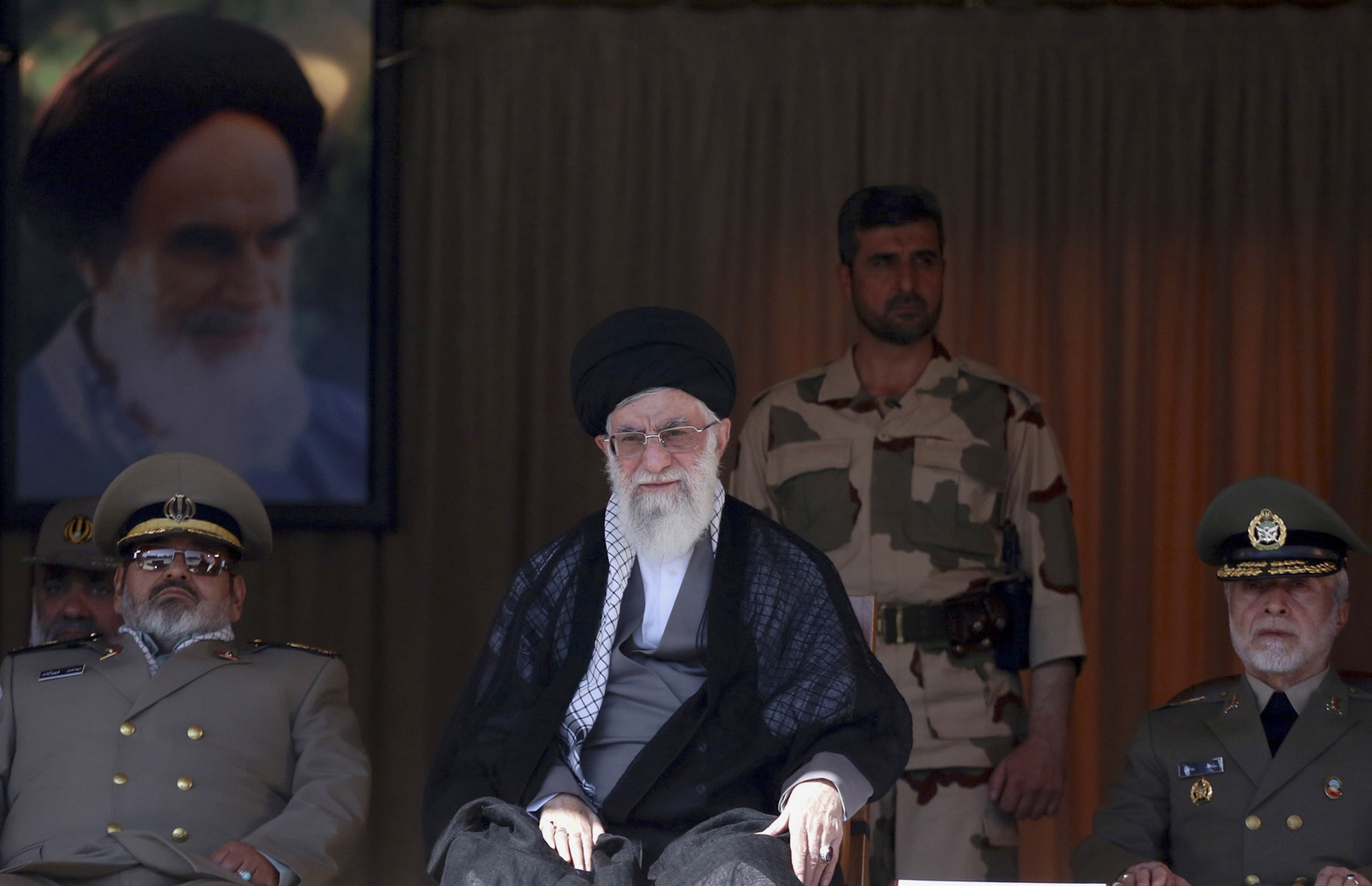TEHRAN, Iran — Iran’s top leader hinted Saturday that he disapproved of the phone call between Presidents Hassan Rouhani and Barack Obama during the Iranian leader’s trip to New York last month, but he reiterated his crucial support for the president’s policy of outreach to the West.
The comments by Ayatollah Ali Khamenei reflect the difficulties facing Iran’s leadership to pursue groundbreaking outreach to Washington without risking a major backlash from hard-line groups uneasy about the pace of the contacts.
In separate remarks, Iran’s Foreign Minister Mohammad Javad Zarif said the exchanges with Washington already have paid dividends by opening opportunities to negotiate a “win-win” nuclear deal that would allow Tehran to maintain its uranium enrichment but provide greater assurances the program remain peaceful. Iran has not yet given specifics on what it would offer in exchange for possible lifting of Western sanctions when talks with world powers resume later this month in Geneva.
Zarif also disputed Obama’s claim in an Associated Press interview that Iran was more than a year from having the capacity to build a nuclear weapon. Zarif repeated Iran’s claims that it does not seek nuclear arms.
The diplomatic outreach to Washington has critical backing from Khamenei, who decides all major policies. But Rouhani must also be careful not to anger hard-line forces, including the powerful Revolutionary Guard, that worry the new president went too far by accepting a phone call from Obama. The 15-minute conversation was the highest-level direct link between the two countries since the 1979 Islamic Revolution.
Khamenei also said the U.S. was “untrustworthy.” He previously has said he’s not opposed to direct talks with the U.S. to resolve Iran’s nuclear standoff with the West but is not optimistic.
“We support the government’s diplomatic moves including the New York trip because we have faith (in them),” Khamenei told commanders and graduating military cadets in Tehran. “But some of what happened in the New York trip was not appropriate,” a thinly veiled reference to the phone call.
“We are skeptical of Americans and have no trust in them at all. The American government is untrustworthy, arrogant, illogical and a promise-breaker. It’s a government captured by the international Zionism network,” Khamenei said.
Rouhani said before and after his trip to New York that he had “full powers” to negotiate a deal with the West, an indication that he had received a mandate from the supreme leader, who has final say on all matters of state. His outreach has also received broad support from Iranian legislators and it appears popular, but some including the Guard seem rattled by the pace of developments.
Prominent conservative analyst Mahdi Mohammadi said Khamenei’s remarks could give Rouhani more room to deal with the West by showing the Iranian president has the power to deal with the U.S. but not an open-ended mandate.
“These remarks increase the government’s bargaining powers at talks with the U.S.,” he said. “He (Khamenei) has authorized the government to move forward but it’s not a blank check,” he said in a commentary posted on the tasnimnews.com website.



